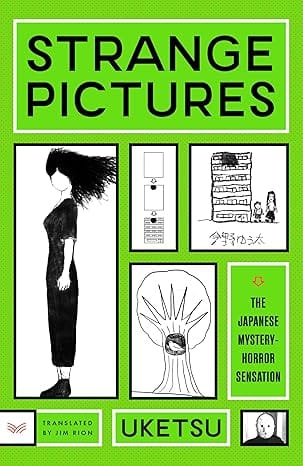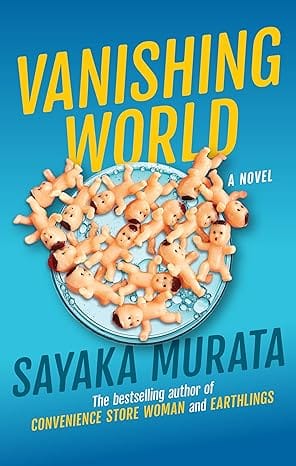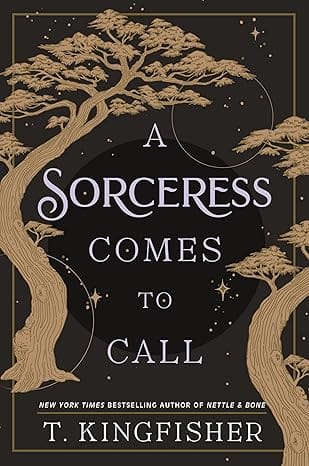A Curious Faith

Lore Ferguson Wilbert's newest book, A Curious Faith: The Questions God Asks, We Ask, and We Wish Someone Would Ask Us (released on 2 August 2022) is an exploration of what it means to ask questions of one's faith, tradition, and of God. Is curiosity and questioning dangerous and sinful, or divine and a God-given gift?
From the publisher:
Reflecting her own theological trajectory toward a more contemplative, expansive faith, Wilbert invites readers to foster curiosity as a spiritual habit. This book explores questions God asks us, questions we ask God, and questions we ask each other. Christianity is not about knowing good answers, says Wilbert, but about asking good questions--ones that foster deeper intimacy with God and others.
A Curious Faith invites readers to go beyond pat answers and embrace curiosity, rather than certainty, as a hallmark of authentic faith.
Whenever one engages in conversation, which I believe is one of the parts of reading a book, it is helpful to know to with whom one is speaking. This is especially true in theological conversations where one's background and tradition often illuminate a host of assumptions around doctrinal ideas and vocabulary. Lore Ferguson Wilbert is an American writer who has spent much time in Evangelical circles. She and her husband now worship in an Anglican congregation in New York state, where they live. (Wilbert does not clarify whether it is an ACNA congregation or an Episcopal congregation they have joined.) Her language and certain foci in this book reflect her Evangelical background and a continuing conservative viewpoint, both theologically and socially.
A Curious Faith is written in an easy-to-read, conversational style. Each chapter takes up a question which is framed with a quote from the Bible. The chapters are short and succinct, usually no more than a few pages long. The questions posed by Wilbert are explored primarily using anecdotes, either from her own life or stories collected from other people. This pattern gives the writing a relatable, casual, memoir feel.
There are some brief but truly lovely theological reflections in this book. Wilbert discusses curiosity, the relationship between theology and geography, sin, shame, faith, and God's love in a frank, sometimes arresting way. She is also not afraid to approach questions that, in many circles I am familiar with, are too uncomfortable or personal to be discussed. Subjects like sin, personal responsibility in faith, human anger and disappointment in God, and spiritual honesty make many people uncomfortable. Wilbert acknowledges the discomfort but persists in the discussion, seeing the benefit in opening up these awkward questions.
There are moments in A Curious Faith where I found myself curious about exactly what Wilbert meant. She refers at one point, in a discussion about her parents, to "sexual sin" without any expansion on whose sin or what it might have been. Did her parents carry the trauma of sexual abuse? Was there adultery? Or did she mean more broadly and widely disputed ideas of sexual sin such as the sexuality of LGBTQ+ people? It is always dissatisfying when an author drops a loaded term into the conversation and walks away from it without clarifying what they meant.
In this book God is an exclusively male figure and is addressed in what is today, in Anglican circles, often called "traditional" language. This is not in and of itself a problem, but may prove a stumbling block for people seeking assistance asking questions of their faith because of negative experiences with patriarchal structure. Some parts of Wilbert's writing feel less like an invitation to others to engage in questioning and curiosity and more like personal faith journal entries or spiritual direction sessions. There are hints of disillusionment with prosperity gospel teachings in some of the discussion about the morality of God and theodicy in general. I am not suggesting that these questions are unworthy or poor inclusions in the book, rather than they may be most useful to people living a particular experience of Christian growth, deconstruction, and questioning.
In spite of her move to a different Christian tradition, the formative influence of American Evangelicalism is evident in Wilbert's writing. She still writes with the Evangelical assumption that it is the normative and universal Christian tradition, and that others are somehow exceptions. In the quote below it seems that Wilbert is suggesting that her current Anglican congregation is somehow not a part of the Western church represented by her previous megachurch congregation. At the same time, she attributes the cycle of celebrity leaders that is rife in Evanglicalism and significantly rarer in traditions like Anglicanism, Lutheranism or Roman Catholicism as a feature of "the Western church today". I don't believe that she intends to hold up American megachurch Evangelicalism as the Christian norm against which all other traditions are measured (God forbid the thought!), but this way of speaking with the implicit assumptions is symptomatic of the Evangelical formation around its own tradition as "Christian" and all others being something slightly different.
Overall, I think this book is just fine and certainly has a place in the theological conversation. The writing is accessible and if one had a group, such as a parish book study or small group, who were looking for ways to explore asking questions in faith, this book might be a useful companion in that work. I suspect the book will appeal most strongly to people who, like the author, have left more restrictive traditions were questions were discouraged and are now looking for ways to flex those interrogative muscles.
If someone asked me for a book that might be helpful on the "Exvangelical" deconstruction journey, I would probably recommend the writing of Rachel Held Evans or Kate Bowler before this book. However, if the request were specifically about the practice of questioning, especially reflective questioning, this book would be an excellent recommendation. It is a useful, worthwhile book for a particular audience.
NB: I received an Advance Reader Copy (ARC) of A Curious Faith from Baker Publishing through netgalley.com in exchange for an honest review.





